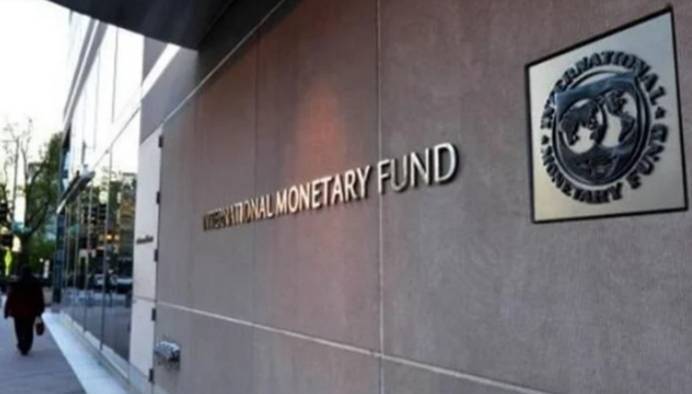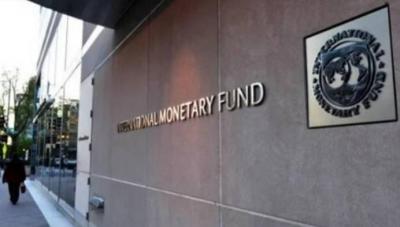There is no significant update regarding the International Monetary Fund (IMF), except for the upcoming visit of an IMF delegation to Beirut next March. Can this visit be relied upon to stir stagnant waters in the Lebanese file? It is clear that the IMF delegation's visit in March falls under Article IV, and consequently, it does not directly concern advancing the initial agreement signed with the Lebanese government at the expert level in April 2022. It is known that reviewing the economic situation of member countries, according to the provisions of Article IV, is a tradition followed by the IMF with member states. This aims to gather information about the state's economy and public finances, ultimately leading to the formation of a file detailing the strengths and weaknesses at the macroeconomic level. The final report on the economic and financial situation is submitted to the concerned government's authorities.
The IMF delegation relies on meetings held with official and private entities in the country to gather information. Thus, it can be concluded that, in principle, the upcoming visit of the delegation is not linked to reviewing the initial agreement concluded with the Lebanese authorities, which awaits the approval of the necessary steps to transition to a final agreement for funding the rescue plan that is being agreed upon. However, this situation does not mean that the delegation will not touch upon the agreement in passing and will therefore raise the issue of the procedures that the Lebanese authorities promised to implement when the agreement was signed at the staff level in April 2022. Incidentally, the delegation will remind officials that a full year has passed since the initial agreement, which is a relatively long period that rarely occurs, as countries that sign initial agreements are generally ready and eager to complete the process to reach a funding program. In contrast, the Lebanese authorities seem unhurried, still in the preliminary stage of implementing procedures, and are still questioning whether to approve capital control first and then the recovery plan, or to approve both projects together? According to indicators, it appears they will not approve either.
Outside the context of the mission of the delegation visiting Beirut, it is worth noting that the environment within the IMF regarding the Lebanese file is contradictory. On one hand, there is a sense of despair and disgust regarding the authorities' unjustifiable inability. On the other hand, IMF officials, led by Managing Director Kristalina Georgieva, regard the capabilities of the Lebanese cadres as outstanding compared to those in the region and the world. This reality is clearly reflected in the genuine bitterness expressed in Georgieva's words when she talks about the disparity between the abilities and qualifications of Lebanese people and the way the country is governed. She does not only perceive this reality from the Lebanese she interacts with at the IMF, but she also noticed it while monitoring the file of assistance for displaced Syrians during the intensification of the war in Syria, and she was surprised by the quantity and quality of the qualified Lebanese available to help, including doctors, engineers, professionals, and mental health specialists... It is evident to her that Lebanon is a massive reservoir of human resources that are not found in any other country in the region.
The meeting Georgieva held with Lebanese media professionals in Dubai on the sidelines of the World Government Summit, although not for publication, allows us to disclose that the impression formed was that the IMF managing director admires the capabilities of the Lebanese people and is somewhat astonished by how this nation struggles to choose representatives that resemble them in authority. However, the second observation that should also be noted, and always without revealing the substance of what Georgieva said, is that the IMF, like most global governments, is comfortable with opening the doors of the small country to displaced Syrians, and that part of the continued international interest in Lebanon, and the possibility of assisting it at least minimally, is linked to this specific issue. This means that as long as the Lebanese people are enduring the consequences of the displacement today, and while waiting to successfully return these individuals to their homeland because Lebanon cannot bear their continued presence, they should exploit this situation further and press for quick assistance that somewhat compensates for the severe damages inflicted on their economy due to the presence of Syrian refugees among them.
It should also be noted that current indicators do not suggest that the IMF is convinced of the necessity to change the government's rescue plan, which is unjust to the people. Therefore, efforts must be unified domestically, and a joint file should be prepared between the government and parliament to be presented to the IMF delegation when it visits Beirut. The report that the delegation will carry will be discussed by the executive board at the IMF, and this may contribute, should a logical and coherent plan be presented, to changing the IMF's management stance in order to agree on an alternative plan, which would be better than the one currently in place and has not yet been approved by the parliament, and may never be approved due to the inability of any deputy to sign a plan that entails a near-complete cancellation of people's deposits.




